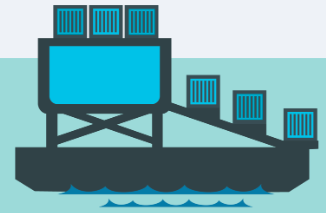App Containers Advancing on Several Fronts

The application container ecosystem continues to thrive as illustrated by another burst of activity this month, including the release of a new image specification and more evidence that Docker containers are making steady headway in upgrading the enterprise software supply chain.
Container leader Docker released a user survey in mid-April asserting that its platform is hastening the enterprise shift to the cloud, especially hybrid clouds, while providing the foundation for delivering agile micro-services. The company also claimed Docker containers are boosting application delivery by transforming DevOps practices. That has translated into, for example, a 13-fold increase in the frequency of software releases, the company-sponsored survey found.
Moving in parallel with Docker are standards groups such as the Open Container Initiative (OCI), whose members include Docker rivals like CoreOS. The group announced the launch last week of a new project to forge an image format spec. The open standard would provide guidelines for a container image that serves as the foundation for the components needed to run a piece of software.
Formed in 2015, OCI previously released a runtime specification for application containers.
The group said a standard for creating and shipping software containers is expected in several months. The goal is an image format spec that would allow developers to package application containers and run them on a variety of container engines. They also will run on growing list of runtimes, including Google Kubernetes, Docker, the CoreOS rkt platform, and Amazon EC2 Container Service (NASDAQ: AMZN).
Along with CoreOS, other "maintainers" of the proposed image format spec include representatives from Google (NASDAQ: GOOG, GOOGL), Red Hat (NYSE: RHT) and Microsoft (NASDAQ: MSFT). Docker also is listed as a participant.
Meanwhile, the Docker container survey conducted in March found that application portability has emerged as a key driver for adopting Docker for software development. Forty-one percent of respondents said Docker helps them control what happens inside application containers, a capability that has accelerated the software development process. Sixty-five percent of respondents—roughly half described themselves as developers—said Docker had speeded software development.
Emphasizing application portability, Docker claimed its Swarm orchestration platform topped the list of tools used to manage containers. Just over one-third of respondents said they are using Docker Swarm, followed by Kubernetes (32 percent) and Amazon ECS (29 percent). The company noted that, of the three, only its Swarm container orchestrator is "cloud agnostic."
While Docker and competing approaches are making steady headway in the enterprise, HPC users have noted that current approaches fall short of meeting the demands of scientific computing. Hence, researchers at Lawrence Berkeley National Laboratory have developed the open source approach that addresses HPC requirements for distributing applications. Sponsors said their approach could be used to build executable containers based on a host system and then define what happens after the container is launched.
Related
George Leopold has written about science and technology for more than 30 years, focusing on electronics and aerospace technology. He previously served as executive editor of Electronic Engineering Times. Leopold is the author of "Calculated Risk: The Supersonic Life and Times of Gus Grissom" (Purdue University Press, 2016).











